Discover Free Rohingya Coalition Genocide Podcast Series
Free Rohingya Coalition Genocide Podcast Series

45 Episodes
Reverse
Six years ago Michael W. Apple, the John Bascom Professor Emeritus of Curriculum and Instruction and Educational Policy Studies at the University of Wisconsin at Madison, celebrated the 40th anniversary of his path breaking book Ideology and Curriculum (originally published in 1979), which established a relationship between education and economic and cultural power. Taylor and Frances brought out the 4th edition of the classic.
I read the book when I was working as a cashier in a gas station at the university town of Davis, California on a graveyard shift in the summer of 1990. After 2 am, there were hardly any customers that stopped to buy booze, cigarettes, chewing gum, snacks, condoms or gas! So,I had plenty of time to devour it. Most nights were uneventful except one late evening when there was a drive-by shooting 100-yards away from the pumps. I was instantly hooked on Apple's sociological study of education. He was a huge name in the study of politics and sociology of curriculum.
At the time, I was a student at the University of California at Davis and enrolled in an MA program in education, reading philosophy, psychology, linguistics, history and so on. .Subsequently, I enquired with him about the possibility of doing a PhD under his mentorship.
The rest is history as they say.
From the winter semester of 1992 till spring 1998, I spent 6 years under his academic supervision. We have been comrades and friends for the last 30+ years.
A month ago, I paid my old teacher - now 82 - a visit in his down-sized flat a short walk on Mill Street from the Capitol in Madison, Wisconsin. We talked for a total of 6 hours over two consecutive days. He was generous with his time, and graciously allowed me to record an interview with him on his life's work. He is one of the world's leading sociologists of education who supervised over 100 doctoral students from around the world of whom only 1 or 2 did not complete their degrees, and has published 32 books in his half-century of influential academic career in the field.
The result is this 3-part podcast.
We touched on a wide variety of topics which were dear and near to both of us including the work of the renowned Brazilian educator Paulo Freire, the Friday Seminar he ran as a critical reading group at the home of the top-ranked Curriculum and Instruction Department, his own activism as a former teacher, a US military veteran and education, American imperialism and authoritarian regimes in places where he had held professorships including China. Apple came from a working class family of Eastern European Jewish migrants in Patterson, New Jersey, and considered himself proudly a "red diaper baby". He has been fuming about the Zionists, arrogating to themselves as "the voice of all Jews". Naturally, he shared his thoughts on Israel's ongoing genocide in Palestine.
Dr. Maung Zarni
Six years ago Michael W. Apple, the John Bascom Professor Emeritus of Curriculum and Instruction and Educational Policy Studies at the University of Wisconsin at Madison, celebrated the 40th anniversary of his path breaking book Ideology and Curriculum (originally published in 1979), which established a relationship between education and economic and cultural power. Taylor and Frances brought out the 4th edition of the classic.
I read the book when I was working as a cashier in a gas station at the university town of Davis, California on a graveyard shift in the summer of 1990. After 2 am, there were hardly any customers that stopped to buy booze, cigarettes, chewing gum, snacks, condoms or gas! So,I had plenty of time to devour it. Most nights were uneventful except one late evening when there was a drive-by shooting 100-yards away from the pumps. I was instantly hooked on Apple's sociological study of education. He was a huge name in the study of politics and sociology of curriculum.
At the time, I was a student at the University of California at Davis and enrolled in an MA program in education, reading philosophy, psychology, linguistics, history and so on. .Subsequently, I enquired with him about the possibility of doing a PhD under his mentorship.
The rest is history as they say.
From the winter semester of 1992 till spring 1998, I spent 6 years under his academic supervision. We have been comrades and friends for the last 30+ years.
A month ago, I paid my old teacher - now 82 - a visit in his down-sized flat a short walk on Mill Street from the Capitol in Madison, Wisconsin. We talked for a total of 6 hours over two consecutive days. He was generous with his time, and graciously allowed me to record an interview with him on his life's work. He is one of the world's leading sociologists of education who supervised over 100 doctoral students from around the world of whom only 1 or 2 did not complete their degrees, and has published 32 books in his half-century of influential academic career in the field.
The result is this 3-part podcast.
We touched on a wide variety of topics which were dear and near to both of us including the work of the renowned Brazilian educator Paulo Freire, the Friday Seminar he ran as a critical reading group at the home of the top-ranked Curriculum and Instruction Department, his own activism as a former teacher, a US military veteran and education, American imperialism and authoritarian regimes in places where he had held professorships including China. Apple came from a working class family of Eastern European Jewish migrants in Patterson, New Jersey, and considered himself proudly a "red diaper baby". He has been fuming about the Zionists, arrogating to themselves as "the voice of all Jews". Naturally, he shared his thoughts on Israel's ongoing genocide in Palestine.
Dr. Maung Zarni
Six years ago Michael W. Apple, the John Bascom Professor Emeritus of Curriculum and Instruction and Educational Policy Studies at the University of Wisconsin at Madison, celebrated the 40th anniversary of his path breaking book Ideology and Curriculum (originally published in 1979), which established a relationship between education and economic and cultural power. Taylor and Frances brought out the 4th edition of the classic.
I read the book when I was working as a cashier in a gas station at the university town of Davis, California on a graveyard shift in the summer of 1990. After 2 am, there were hardly any customers that stopped to buy booze, cigarettes, chewing gum, snacks, condoms or gas! So,I had plenty of time to devour it. Most nights were uneventful except one late evening when there was a drive-by shooting 100-yards away from the pumps. I was instantly hooked on Apple's sociological study of education. He was a huge name in the study of politics and sociology of curriculum.
At the time, I was a student at the University of California at Davis and enrolled in an MA program in education, reading philosophy, psychology, linguistics, history and so on. .Subsequently, I enquired with him about the possibility of doing a PhD under his mentorship.
The rest is history as they say.
From the winter semester of 1992 till spring 1998, I spent 6 years under his academic supervision. We have been comrades and friends for the last 30+ years.
A month ago, I paid my old teacher - now 82 - a visit in his down-sized flat a short walk on Mill Street from the Capitol in Madison, Wisconsin. We talked for a total of 6 hours over two consecutive days. He was generous with his time, and graciously allowed me to record an interview with him on his life's work. He is one of the world's leading sociologists of education who supervised over 100 doctoral students from around the world of whom only 1 or 2 did not complete their degrees, and has published 32 books in his half-century of influential academic career in the field.
The result is this 3-part podcast.
We touched on a wide variety of topics which were dear and near to both of us including the work of the renowned Brazilian educator Paulo Freire, the Friday Seminar he ran as a critical reading group at the home of the top-ranked Curriculum and Instruction Department, his own activism as a former teacher, a US military veteran and education, American imperialism and authoritarian regimes in places where he had held professorships including China. Apple came from a working class family of Eastern European Jewish migrants in Patterson, New Jersey, and considered himself proudly a "red diaper baby". He has been fuming about the Zionists, arrogating to themselves as "the voice of all Jews". Naturally, he shared his thoughts on Israel's ongoing genocide in Palestine.
Dr. Maung Zarni
By 3CR Radical Radio | May 26, 2023
Featuring the latest in activist campaigns and struggles against oppression fighting for a better world with anti-capitalist analysis on current affairs and international politics.
Presenters: Jacob Andrewartha, Chloe DS
Maung Zarni, burmese scholar and activist with over three decades of experience in international politics & activists joined the program to reflect on the ongoing uprising in Myanmar against the millitary dictatorship and the nature of the Rohingya genocide and why it should have been opposed prior to the uprising.
Note: Maung Zarni will be a featured speaker at the upcoming Ecosocialism 2023: A World Beyond Capitalism conference on July 1-2 in Naarm/Melbourne.
Dr Maung Zarni calls for the reassessment of bilateral and multilateral relations with the UN Member state of Myanmar, in the hands of the genocide perpetrators.
He urges the international community of democracies to provide Myanmar resistance with arms and other support in the same manner they are unequivocally arming and supporting Ukrainian resistance against the war criminal regime of Putin.
BBC World Radio
22 March 2022
Dr Maung Zarni: The International Court of Justice has overstepped its bounds by controversially accepting Myanmar Military's Agent, BBC World Service Newsday Program 6:20 GMT/London, 21 Feb 2022
Published by ABC on December 7, 2021
On RN Breakfast with Cathy Van Extel
A court in Myanmar has sentenced the country's ousted civilian leader Aung San Suu Kyi, to two years on charges of inciting public unrest and breaching COVID-19 protocols.
Aung San Suu Kyi, who was detained in a military coup in February, is facing a total of 11 charges and life imprisonment.
Guest: Maung Zarni, human rights activist and founder of the Free Burma Coalition
Producer:
Linda LoPresti
London, 7th May – In this latest episode of Trouble with the Truth, Lana speaks about the origins and the consequences of the coup with UK-based academic and human rights activist Maung Zarni.
It’s been over three months since the military coup in Myanmar that has resulted in violence and mass protests. Press freedom has suffered immensely, as the military junta shut down the internet, muzzled and attacked journalists. In this latest episode of Trouble with the Truth, Lana speaks about the origins and the consequences of the coup with UK-based academic and human rights activist Maung Zarni. He is a co-founder Forces of Renewal Southeast Asia network, Burmese coordinator of the Free Rohingya Coalition and has been engaged in activism for over thirty years. Zarni gave a detailed and thought-provoking account of the events in Myanmar – the unravelling of the coup, how people came together to join the fight against the junta and how civilians and journalists are navigating the social media and information shutdown. He touches on what can be done at a local and global level to help topple the military dictatorship.
Myanmar military cannot put the defiant Burmese people under its boot any more.
Dr Maung Zarni, BBC World Service Weekend, 6:30 GMT and 8:30 GMT, 21 Feb 2021
In the first episode of the 2021 Free Rohingya Coalition Genocide Podcast Series, Gregory Stanton and Daniel Feierstein, the past two Presidents of the International Association of Genocide Scholars, shared their thoughts on the perennial question of INTENT in the Genocide Convention, and discuss The Gambia vs Myanmar case at the International Court of Justice.
Hosted by Dr. Maung Zarni
FRC Genocide Podcast Series (မြန်မာပိုင်း)
ဒေါက်တာမောင်ဇာနည် စီစဉ်တင်ဆက်သည်။
Rohingya Blogger တည်ထောင်သူ ဦးဘစိန်နဲ့ ဒေါက်တာမောင်ဇာနည်တို့ စကားဝိုင်း
FRC Genocide Podcast Series မြန်မာပိုင်းအစီအစဉ်မှာ ဦးဘစိန်က -
(၁) ရိုဟင်ဂျာနဲ့ ရခိုင် အသိုင်းအဝိုင်းနှစ်ခုကြား အေးအတူပူအမျှ သင့်မြတ်စွာ နေထိုင်လာခဲ့တဲ့အကြောင်း
(၂) နဂါးမင်းစီမံချက် ဖြစ်ပေါ်လာပုံအဆင့်ဆင့်
(၃) ၁၉၇၈ ခုနှစ်မှာ နဂါးမင်းစီမံချက်နဲ့ ရိုဟင်ဂျာတွေကို ညှဉ်းပန်းနှိပ်စက်ပြီး အစုလိုက်အပြုံလိုက် တစ်ဖက်နိုင်ငံကို မောင်းထုတ်ခဲ့စဉ်က ကိုယ်တွေ့အတွေ့အကြုံ - စတာတွေကို အသေးစိတ်ဆွေးနွေးထားပါတယ်။
FRC Genocide Podcast Series [in English, hosted by Dr. Maung Zarni]
A Conversation with Michael Becker, former associate legal officer with ICJ, a PhD candidate at the University of Cambridge
The FRC Genocide podcast with Michael Becker covers:
1) The recent developments around the Myanmar genocide case at ICJ, specifically Canada and the Netherlands’ official joint plan to “intervene” in The Gambia vs Myanmar;
2) The Gambia team’s litigation in USA regarding Facebook’s refusal to cooperate with The Gambia legal team on the release of the potentially valuable evidence of Myanmar’s genocidal intent; and
3) Myanmar’s specific acts of non-compliance with the ICJ provisional measures order to protect Rohingyas
FRC Genocide Podcast Series [in English, hosted by Dr. Maung Zarni]
The FRC Genocide Podcast with Edith Mirante covers:
1) “the unlivable Bhasan Cher island” where Bangladesh is planning to relocate 100,000 Rohingya genocide survivors
2) The sordid history of Bangladesh in mistreating Rohingya refugees over the last 40 years
3) Burma or Myanmar’s internal colonialism towards national minorities
4) Western and global corporate involvement and Burma’s “Resource Curse”
5) The slow Balkanization of Myanmar as the result of decades of repression by Myanmar or Bama ruling class
A conversation with Dr. Gianni Tognoni, Secretary General of the Rome-based Permanent Peoples Tribunal (hosted by Dr. Maung Zarni)
The FRC Genocide Podcast with Dr. Gianni Tognoni covers:
1) The problems with international law as the law of the states
2) The rights of peoples, not states
3) The origin of Permanent Peoples’ Tribunals
4) The nature and proceedings of the PPT
5) PPT on international crimes such as genocides, war crimes, exploitation
6) Peoples’ Tribunals as part of People’s Struggle for Freedom, Justice and Accountability
A medical doctor by profession, Dr Gianni Tognoni is the Secretary General of the Rome-based Permanent Peoples Tribunal since its establishment in 1979. Over the last 35 years Dr Tognoni has been deeply involved in the promotion of humans and people's rights, beginning with his participation in the Russell Tribunal 2 on Latin American Dictatorships ( 1973-76) and in the preparation of the Universal Declaration of Peoples Rights. In his professional field of medicine, he has collaborated with WHO in the formulation of essential drugs policies, and activated research groups in community epidemiology in most of the countries of central and Latin America, and in Africa. As research director at the Mario Negri Institute in Milan over the last 30+ years, Dr Tognoni has directed research in the fields of cardiology, intensive care, neurology and psychiatry the findings of which have been published in some of the world's leading professional journals.
The FRC Genocide Podcast with retired Dean, Professor Gill Boehringer covers:
1) The feudal structure of wealth and power in the Philippines
2) The targeted extrajudicial killings of those “red-tagged” (that is, labelled "subversives") by the Duterte regime
3) The alarming rate of the persecution of people’s lawyers and
4) The attacks on civil society including journalists
Prof. Gill Boehringer is an Honorary Senior Research Fellow at Macquarie University School of Law, Sydney, Australia. He was previously Dean at the School.
His research focuses on repressive states and the violation of human and environmental rights. For the past decade he has had a special focus on the Philippines. Currently he is studying the ‘drug war” in that country, and attacks on lawyers under the regime of the authoritarian regime of President Duterte.
FRC Genocide Podcast Series [in English, hosted by Dr. Maung Zarni]
Daniel Feierstein holds a Ph.D, in Social Sciences by the University of Buenos Aires. He is the Director of the Centre of Genocide Studies at the National University of Tres de Febrero in Buenos Aires, Argentina.
Feierstein´s books and articles have been critical in the qualification of the crimes committed in Argentina as genocide, established by 9 different tribunals from 2006 on. Feierstein is the current President of the International Association of Genocide Scholars. Among his most recent books, it is worth to mention “Genocide as a Social Practice. Reorganizing Society under the Nazis and Argentina´s Military Juntas (Rutgers University Press, 2014)” and “Memorias y Representaciones. Sobre la elaboracion del genocidio I” (FCE, 2012). He also chaired the Permanent Peoples Tribunals on Sri Lanka (2013) and Myanmar (2018).
In this part II of 2 conversations, Daniel Feierstein discusses:
1) US National Security Doctrine as applied to Latin America and resultant genocides & other grave crimes in the region;
2) The fallacy of treating Auschwitz as “the yardstick” against which other genocides are measured;
3) Reorganizing internal societal relations as the goal of genocides; and
4) The pervasive problem of “the genocidal mind” that frames groups and their identities as “immutable” “fixed” & "permanent".
FRC Genocide Podcast Series [in English, hosted by Dr. Maung Zarni]
Febriana Firdaus, an independent investigative journalist based in eastern part of Indonesia, discusses:
1) West Papua, a resource rich and mountainous island nation, snatched from the Dutch colonial ruler by Indonesia as since 1961
2) History of Western corporate exploitation of the island’s gold, copper and timber
3) Remote, isolated and deeply impoverished lives of the predominantly Christian West Papuan people
4) Trans-Migration of Javanese Muslims as state-supported new migrants
5) Christian Church and its role in resistance and struggle for self-determination
Rene C Mugenzi is a UK-based human right activist from Rwanda. He is also Chair of the Global Campaign for Rwandans Human Rights, also based in London.
Rene has spoken on several platforms including universities, the House of Common, the European Union and the UN on human rights issues relating to Rwanda. In 2011, the UK Police foiled an assassination plot that has been planned by agents of the Rwandan government. Besides Rwandan human rights issues, Rene gas campaigned for the end of Myanmar's ongoing genocide of Rohingya people.
Rene Mugenzi, a UK-based Chairman of the Global Campaign for Rwandan Human Rights, discusses:
1) His mixed Hutu-Tutsi heritage and identity
2) The principal use of identification cards to kill, or not to kill
3) Radio station and communal meetings as pre-internet, and pre-Facebook platforms for the genocide propaganda
4) Geopolitics surrounding the West’s selective justice for Rwandan genocides (Hutu government’s genocide against Tutsis, and subsequent Tutsi rebel’s genocide against Hutus)
5) Reflection on the visit to Auschwitz with Rohingya, Burmese and other international activists and scholars.
FRC Genocide Podcast Series (မြန်မာပိုင်း)
ဒေါက်တာမောင်ဇာနည် စီစဉ်တင်ဆက်သည်။
ကချင်လူမျိုး - အတိုက်အခံခေါင်းဆောင်နဲ့ ရှေ့နေတစ်ဦး ဖြစ်သူ ဦးခွန်ဆာမခေါ်နဲ့ ဒေါက်တာမောင်ဇာနည်တို့ရဲ့ ဗမာကိုလိုနီအမြစ်ပြုတ်ရေး စကားဝိုင်း
၎င်းတို့နှစ်ဦးက -
(၁) မြန်မာနိုင်ငံအတွင်း နယ်စပ်တောင်တန်းဒေသများနဲ့ မြေပြန့်ဒေသများကြားက ကိုယ်ထူကိုယ်ထအသင်းအကြောင်း
(၂) မြန်မာနဲ့ကချင်၊ ဗုဒ္ဓဘာသာနဲ့ခရစ်ယာန်ဘာသာဝင်များရဲ့ အမွေအနှစ်များအကြောင်း
(၃) ဗမာကိုလိုနီလက်အောက်ခံ နယ်စပ်ဒေသမှပြည်သူများအကြောင်း
(၄) ဗိုလ်ချုပ်အောင်ဆန်း ကတိကဝတ်ပြုခဲ့တာနဲ့ ဖဒရယ်စနစ်ရဲ့မူများကို ချိုးဖောက်ခြင်း၊ တိုင်းရင်းသားလူမျိုးစုများ တန်းတူညီမျှရေးနဲ့ ကိုယ်ပိုင်ပြဌာန်းခွင့်များ ချိုးဖောက်ခံရခြင်း - စတာတွေကို စုံစုံလင်လင် ဆွေးနွေးထားပါတယ်။
Daniel Feierstein holds a Ph.D, in Social Sciences by the University of Buenos Aires. He is the Director of the Centre of Genocide Studies at the National University of Tres de Febrero in Buenos Aires, Argentina.
In this FRC Genocide Podcast Series, Argentinian Professor Daniel Feierstein, past-President of the International Association of Genocide Scholars, discusses:
1) Ralphael Lemkin’s two-phased conception of genocide - the identity-based intentional destruction of populations and re-ordering of demographic make-up and social relations
2) The spectacular failures of international law and global accountability in cases of genocides
3) Nazi and Argentinian genocides
4) Myanmar’s ICJ lawyer William Schabas and his un-ethical defense of the genocidal regime



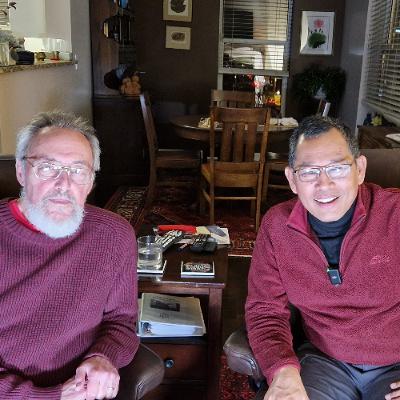

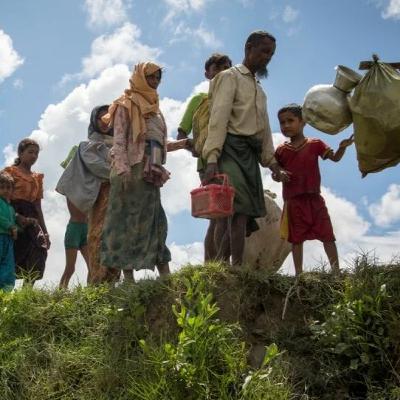
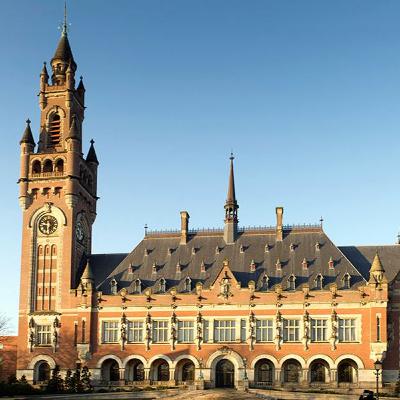
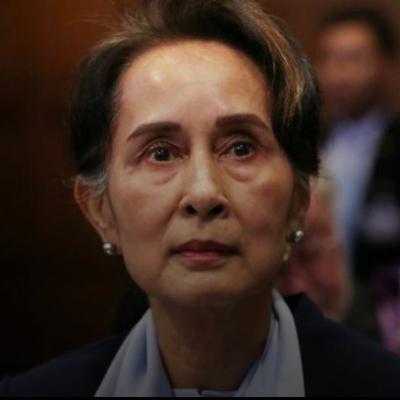
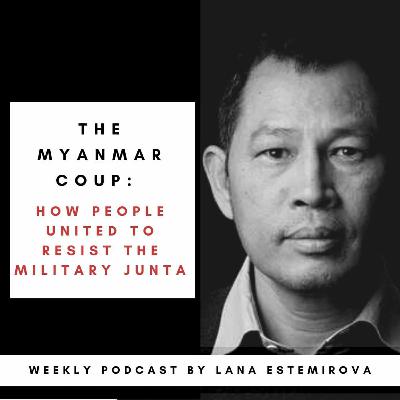
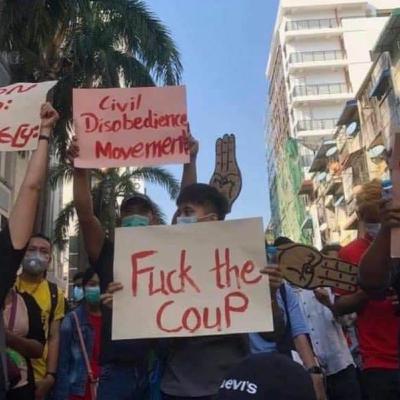
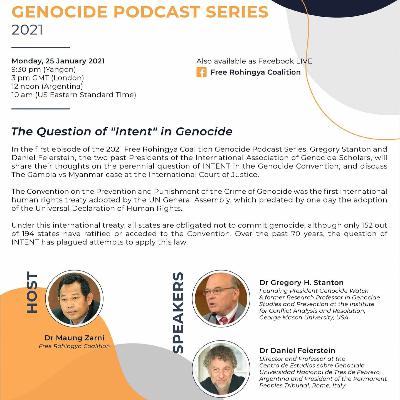

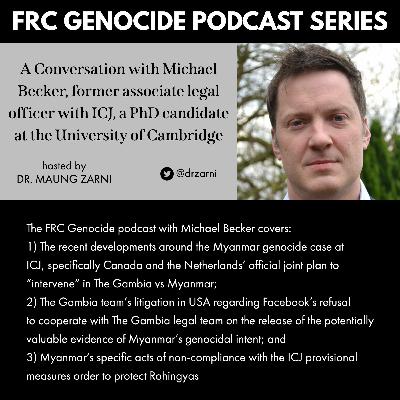
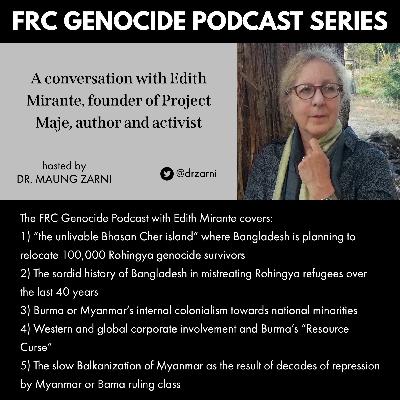
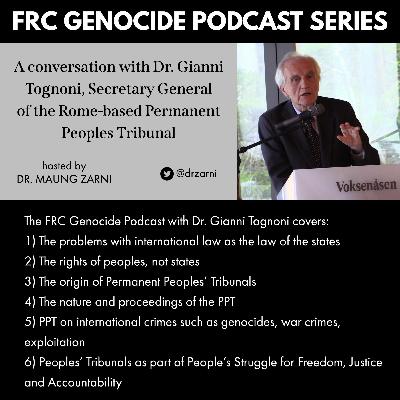

![A conversation with Daniel Feierstein, past-Pres. of the Int'l Assoc. of Genocide Scholars [Part II] A conversation with Daniel Feierstein, past-Pres. of the Int'l Assoc. of Genocide Scholars [Part II]](https://s3.castbox.fm/91/2d/c1/837c0cde1f85ae77f09e6985f0fdcc096c_scaled_v1_400.jpg)

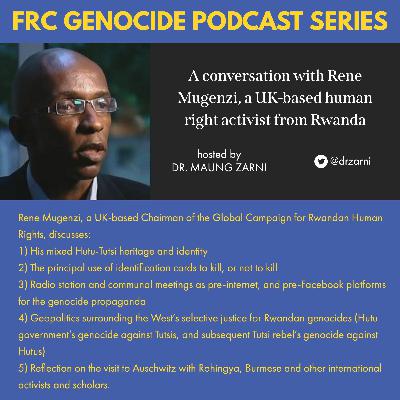
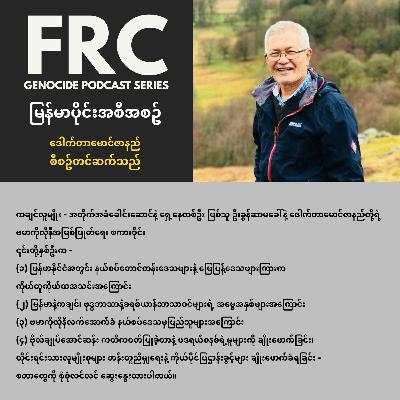
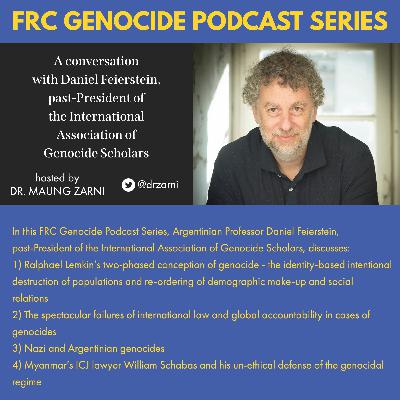



Wow, great podcasts. More people need to know about this travesty.